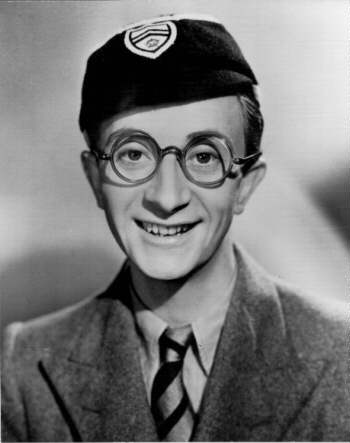
So, there’s Gethsemane, by David Hare. And it’s fulfilling a function. As a middling example of the Theatre of Dinner Party Whinge, it’s packing them in at the National at present, assuring a semi-rapt audience nightly that all is wrong with the world in exactly the ways that make them most comfortable. Which is all well and good: far be it from me to deny any man the inalienable right to batter on tirelessly and at length about very little at all, and I’m sure the dining tables of north and south west london are a mildly happier place for its existence.
Still, what is exceptional about the experience of watching something like Gethsemane is exactly how much it conforms to your lowest expectations of this type of exercise. The hollowness of it. The intellectual laziness. How little it expects of its audience, and how readily that audience appears to lap it up.
What Gethsemane is, in the final analysis, is not so much a play as a recognition delivery system, a mildly complicated mechanism for the production of nice warm feelings of self justification in the pleasure centres of the middle-class brain. And it works in three ways.
First, in assembling a series of not-really-topical political incidents of varying importance over the past couple of years (Levy, Jowell, William Straw) Hare is, supposedly, encouraging the audience into a guessing game of political allusion.
If so, it’s of the type I spent most of Christmas playing with my nephew, though the delight of the audience at exercising its capacity to recognise extremely well publicised figures seemed no less genuine than a one year old’s at the fact that I kept giving him his nose back. See PM with drum kit, think Tony Blair, feel clever, laugh to indicate cleverness to group, receive endorphin hit. Happy Days.
Second, there is the studious (and admirably complete) checking off of the list of Fuzzy Left political arithmetic, a very receptive pleasure centre which Hare tickles with all the bored skill of an aging lothario:
New Labour = Bad, because New Labour = Corrupt and Just Not Right Because They Let Us Down.
Teachers = Good. Too-clever-for-their-own-good Jumped Up Jews = Bad.
Iraq war = Bad. Keeping Your Integrity = Good.
Affluence = Bad. Caring = Good.
Immigration controls = Being Racist, opposing immigration controls = Morally Superior.
The Whole Darn World = In a bit of a bloody mess, really, but The Enlightened Middle Classes = Right all along, and why doesn’t anyone realise it?
And third is the creation, extraordinary in its subtlety, of the sense that what we are watching is Important Political Theatre. This is achieved by assembling all of the component elements of a piece of political theatre into one place (good actors, a theatre, a touch of didacticism, recognisable political tropes, some dialectics, a vaguely Pinteresque air of menace, heavy-handed symbolism and so on and so forth) and having your script (which is comprised of empty platitudes and a vague fog of middle-class malaise) occur in the same place at the same time .
That way, it’s possible to have the audience hear a very competent actress say “Once it was possible to do good by being good. Now the only way to do good is by being clever.”, and interpret that statement as a piece of valid political commentary (if you even begin to suspect that it actually might be, perform the following mental exercises: try to work out when that “once” refers to. Once you’ve tired of that, try to think what someone like Nye Bevan would make of that statement). It’s semiotic sleight of hand at a high level, all machine-tooled to get those reward systems in the brain buzzing with the empty crackle of an E rush.
And, well, broadly it seems to work. Which is all well and good, I suppose. But let’s not call it a play.
If it were a play, it might have something interesting or insightful to say about politics. For instance, it might expand on the idea (expounded by the almost anti-semitically broad eminence gris Otto) of the Labour Party in government as a machine dedicated solely to the cause of Doing What Works – it might even develop that out into some thinking about the fact that the failure to do just that through the application of a ideological programme in foreign policy, is the real betrayal of the majority of the people who voted for Labour as a centre left party that could deliver genuine social change. It might even discuss whether the idea of an ideological government is necessary or even wanted following the excesses of the twentieth century. Which would be pretty interesting given the fact that the grace notes of the Obama campaign presented fair minded, pragmatic bipartisanship as “Change” and “Hope” following 8 years of ideological rule.
But it’s not a play, so that line of questioning is played from a stacked deck of authorial and directorial choices that puts the thought into the mouth of a caricature and allows it to be successfully rebutted by a facetious one-liner about the war in Iraq (boo!).
If it were a play, it might feature some commentary about recognisable people engaged in some form of recognisable (or, if you must, symbolic) interaction.
If it were a play, it might attempt to make the audience think, or challenge their expectations, or try to say something.
If it were a play, it might attempt to convey or evoke some strong feeling, like humour, or anger, or hatred, or shame.
But it’s not a play, it’s the drawled voice of someone who can’t even be bothered preaching to the choir. After all, preaching is a bit, well, uncivilised. And anyway, why bother preaching when you know that a catalogue of winks, smirks and raised eyebrows will do? It’s the intellectual equivalent of watching Kenneth Williams in the later Carry Ons. But without the self loathing to make it interesting. Okay, Charles Hawtrey, then.

